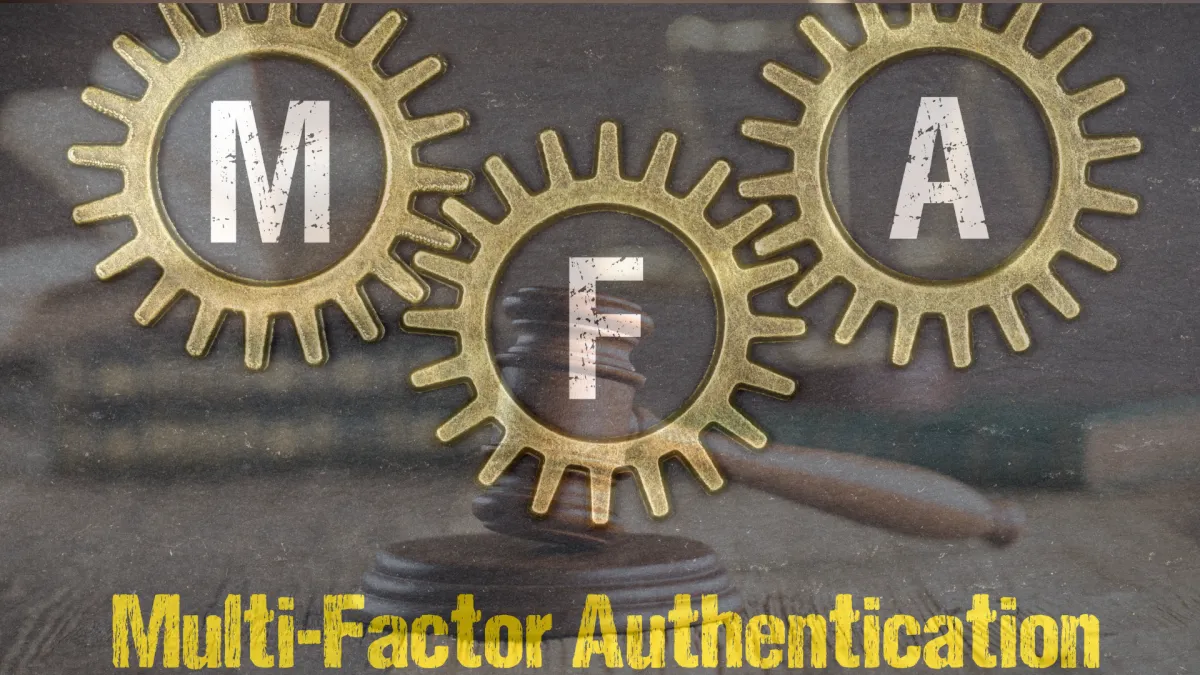[email protected] | 512-761-7652
safemode IT Tech News

5 Reasons Law Firms Need Multifactor Authentication
As a lawyer, you deal with a lot of confidential information every day, from sensitive client data to privileged communication. The security of this information is paramount, and any data breaches or unauthorized access can have disastrous consequences. One of the most vulnerable aspects of a lawyer's communication is email, which is why Multi-Factor Authentication (MFA) is essential. In this blog, we will discuss five reasons why lawyers need MFA on their email.
1. Protecting Confidential Information
Lawyers deal with confidential information daily, and emails are a common way of communicating this information. This information can include privileged communication, client data, or trade secrets. Any unauthorized access to this information can cause severe damage to the clients' interests, the law firm's reputation, or even result in legal action. MFA adds an additional layer of security to emails, making it much more challenging for hackers to access confidential information.
2. Preventing Unauthorized Access
Hackers are always looking for ways to access email accounts to obtain confidential information. They can use various methods to gain access, such as phishing attacks or guessing passwords. MFA makes it harder for hackers to gain access because it requires another authentication method in addition to the password. This can be a code sent to a mobile phone, a fingerprint, or even a facial recognition scan. With MFA, even if a hacker guesses a password, they won't be able to access the account without additional authentication.
3. Compliance With Regulations
In many industries, including legal, there are regulations and standards that require MFA for email. For example, in the healthcare industry, HIPAA requires MFA for email communication containing protected health information. Failing to comply with these regulations can result in severe legal and financial consequences. By implementing MFA, lawyers can ensure they comply with these regulations and standards.
4. Mitigating Risk
Lawyers face significant risks in their profession, from lawsuits to data breaches. MFA can help mitigate some of these risks by adding an additional layer of security to email accounts. This can help prevent data breaches and unauthorized access to confidential information, reducing the risk of legal action or reputational damage.
5. Enhancing Productivity
While MFA may add an additional step to the login process, it can ultimately enhance productivity. With MFA, lawyers can be confident that their email accounts are secure, and they can focus on their work without worrying about potential security breaches. This can ultimately save time and increase productivity.
In conclusion, lawyers deal with sensitive and confidential information daily, and email is a common way of communicating this information. Multi-Factor Authentication is essential for protecting this information and preventing unauthorized access. MFA can help lawyers comply with regulations, mitigate risks, and enhance productivity. With the increasing frequency of data breaches and cyber-attacks, MFA is no longer a luxury but a necessity for lawyers.
Services
Managed IT
Cybersecurity
Business Continuity
IT Services Kyle
IT Services San Marcos
IT Services Bastrop
Useful Links
Free Awareness Training
Tech News
Newsletters
Legal Stuff

